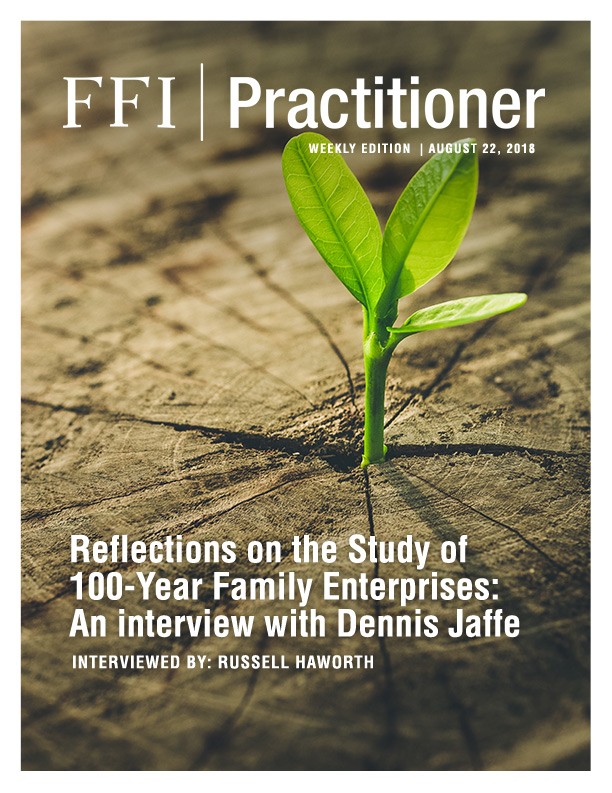Practice Insights
From FFI Practitioner
The month-long FFI Practitioner series dedicated to the theme of “Reflections” continues this week with a very special interview with Dennis Jaffe, author of the recent working paper titled, “Resilience of 100-Year Family Enterprises: How Opportunistic Innovation, Business Discipline, and a Culture of Stewardship Guide the Journey Across Generations.” In this interview, hosted by Russ Haworth, Dennis reflects on some of the key takeaways from his study of nearly one hundred successful family enterprises.
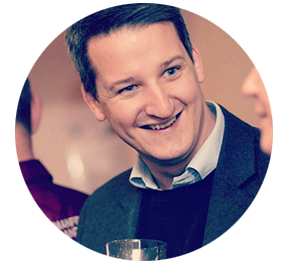
Hello and welcome to this week’s edition of FFI Practitioner, a publication brought to you by the Family Firm Institute. I’m Russell Haworth, and for this week’s edition I’m speaking with Dennis Jaffe. For over 40 years, Dennis has been one of the leading architects in the field of family enterprise consulting, as both an organizational consultant and a clinical psychologist. Dennis is hosting a session at this year’s global conference being held in London on the 24th to 26th of October. I am speaking to Dennis about his recent research study about the cross-generational evolution of global 100-year family enterprises.
Hi, Dennis, and welcome to the show. Thank you for joining us today. You recently published the fifth working paper from your 100-year family enterprise study. Can you please tell us a little bit more about the origin and the results of this research project? Why do you think 100-year families are special and worthy of intensive study?
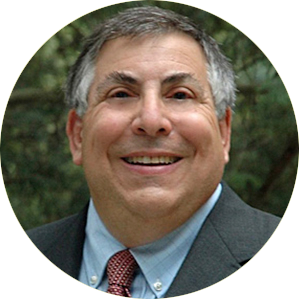
I’ve been thinking about and wanting to do this for many years. A couple of years ago, when I retired as a professor, I decided it was now or never. So, this is my personal legacy project. The idea comes from one of my mentors, Abraham Maslow, who first coined the concept of peak performance, that he extended to organizations. He made this the statement, which has really stuck with me– that you can’t learn anything about healthy people by studying mental illness. I think it’s the same about family business. You can’t learn about healthy, successful family businesses by studying troubled family businesses. So I thought, where are we going to find the peak performing family businesses? My idea was to study families that had moved past the third generation, not just in an ownership of a strong and vital business, but in maintaining and sustaining connection as a family.
These were successful families, or actually groups of related households with a common legacy. I decided to study them, to see what their generations of wisdom could teach us. In the early phase of the research I had support from the Family Office Exchange and the Family Business Network. Both of them allowed me to contact families and helped me define what I wanted to study. In the last four years, the working papers have been sponsored by Merrill Lynch and U.S. Trust. I’m really grateful to have that kind of support to help me get in touch with these 100-year families.
The families that we studied were selected by three criteria. One is they had to have been together as an enterprising or business family for three generations or more. Secondly, they had to have a shared identity and regular connection as a family. They couldn’t be a bunch of strangers who happened to be related. And third, they’re large. We said over $200 million in net worth, and most of the families in the study are much, much higher net worth. They come from 20 countries. So, it’s a global study, and we’re now approaching 100 families. There’s a group of us that have been doing the interviews. We interview two family leaders from two different generations, and transcribe the interviews. We have now a database of just about 100 families, and our working papers delve into their stories and share their wisdom.
And in your research what do you believe are the most important indicators or factors that influence whether a family enterprise can survive beyond three generations?
We’re beginning to see from all these interviews and shared wisdom and experience, a couple of themes and practices. We’re using a process that was used in the Good to Great research and the Search for Excellence — which is to gather a lot of personal accounts and then look for the themes that emerge. Certain themes emerge that are very, very common and, I think, also very, very special. They’re common to these 100 families, but they’re not common in family business or business in general. We call our families generative families, because they continually create value in many ways.
“One is that they have a core purpose and a set of values, and those values and purpose are not rigid and unquestioned. Their values and purpose are somewhat continuous, but their meaning evolves over generations.”
Here are a couple that have come up: One is that they have a core purpose and a set of values, and those values and purpose are not rigid and unquestioned. Their values and purpose are somewhat continuous, but their meaning evolves over generations. These families share a purpose, and they reaffirm that purpose together, in each generation — each generation reinvents the business. There’s a lot of cross-generational engagement — the older generation is involved with the younger generation. The older generation is listening to the younger generation, the younger generation is learning from the older generation, and actually they’re learning from each other.
Another thing that comes up is that these families are not doing family governance and family activities just to create great business. Because they’re successful as a family business and because they’ve created wealth, they make an investment and a commitment to the family. Since they have created wealth over generations, they become concerned with what they want to do with that wealth. One of the things they decide to do with their wealth is to invest in creating a great family and developing their human capital.
A great family contains high performing people that are doing what they love — people that are being productive, that are doing important things — and a family that is doing things together. They’re not a bunch of individuals; they’re an interdependent group able to resolve conflict and deal with differences and grow. They’re able to be resilient and transform themselves regularly. They sell the legacy business. They move on to other areas. They go into multiple businesses. They become more global — and there’s a continual reinvention, which means that the older generation has to continue to learn. There’s a real commitment and an active practice in the family to develop the next generation.
Sidebar
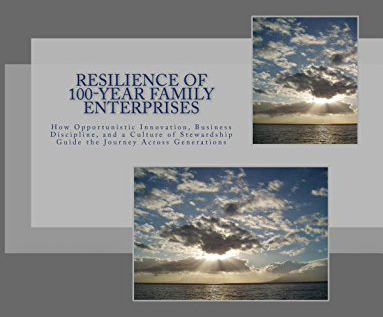
by Dennis Jaffe
Then there’s transparency. When they get together there’s teaching about the business. They often have annual meetings in summer camps. They create education programs. They bring family members into the board as observers and learners. They create ways of supporting family members through a family bank and other ways of investing in the ideas of many family members. They have a shared social commitment. They create a foundation. They give back to the community. They extend and respect the people that have worked with them for generations and the people that are loyal to them –they’re loyal back — and so there’s a sense, not just that it’s us in the family against everybody else, but that our “family” includes those that have worked for us, the people that we serve, the community that we live in — the idea of family becomes broader and grows in circles that extend wider and wider.
These are things that people suspected about successful long-term family enterprises, but by interviewing and talking with 100 global families, we validate that these things exist, and we learn how they develop and are implemented. They’re not just checking a box in a survey. They’re actually doing these things, and they can tell us how they work and how hard they are. Not just how wonderful they are. So, some themes and best practices are emerging very clearly from all this diversity.
How do you believe external factors such as increased globalization, reliance on technology, might impact the future of family business? And do you believe that family businesses are comparatively better suited to confront these challenges than, say, nonfamily counterparts?
Well, here’s why family businesses have a special advantage in this. They have a younger generation, and the younger generation are getting better educated — very often in other countries—than their elders. They travel. They grow up with a global experience. They are digital natives with technology and a social commitment that leads them to look at all kinds of new opportunities. While members of younger generations do not yet have formal leadership roles, but they’re upcoming leaders. The family has a culture where they listen and learn from these people. These successful global families very often say “we learned this from our grandson, who went to a program or learned about this.” There’s a way in which the new generation has a voice in the family with a role that does not exist in a non-family business. As the future leaders, their ideas for innovation and change are taken seriously. Businesses in general find it very hard sometimes to change and adapt, and they get stuck in doing what they do, and sometimes the company can go from being really successful to losing it with a new technology or not being able to take advantage of change. Family businesses seem to have a built-in vanguard who seed the business with new ideas.
The study indicates that as a family enterprise professionalizes its governance systems by bringing in outside professionals and the independent directors, the family can lose involvement in the business, creating family passivity and lack of development. How can families best adapt to this new ownership while maintaining the familiness of the business that gives it that competitive advantage?
The family creates a culture, based on its values and experience, and I think professionalization is necessary because businesses are more and more accountable and facing more and more pressures. As they enter new generations, the family enterprises can’t just continue to do things the way they always have and continue to succeed. So most of the families, with some very powerful exceptions, had a transition where they moved from being owner/operators, as they were in this first generation, and maybe the second generation, and they shift to being stewards, overseers. Acting as a steward is not a skill that just any family member can take on — to be a steward of a billion-dollar business or a set of huge but volatile investments needs some serious skills. The family members have to be, in effect, professional stewards. They have to learn how to be board members and owners.
They have to learn how to analyze and seize on new opportunities. They have to create an attractive environment and culture to bring in talented people outside the family to use the resources that they have. This is a professionalization from being professional managers to being professional stewards and visionaries in bringing the family together. This is done in the family by having a focus on education, development, mentoring of young people, teaching them the values, inviting them to make a contribution to the family and inviting them by affirming them: “You have ideas about the future, and we will listen to them because we respect you and what you have learned. We may not adopt them immediately and unquestionably, but we will allow you to have a voice and to step into the business appropriately and help us go in new directions.”
They have close extended families, and they create a culture of family that revitalizes the business by having a purpose, values, continuity and ways of doing things that are meaningful and exciting. The “familiness” becomes what people have called the” family advantage,” an advantage the family has in being resilient, in taking action, in being able to change and not get stale because the new leadership comes up and challenges the old leadership. Sometimes appropriately, sometimes prematurely, but the family begins to work those things out.
“There’s a lot of cross-generational engagement — the older generation is involved with the younger generation. The older generation is listening to the younger generation, the younger generation is learning from the older generation, and actually they’re learning from each other.”
Thank you. You recently indicated that seventy-two percent of the families you interviewed for this study utilized a family office. What do you see as the proper role of a family office in facilitating multigenerational family business success? And why do you believe these generative families prefer single family office over, say, a multifamily office?
We consider the family office a stage of development of the enterprising family. It comes about when either they began to take money out of the legacy business and seek diversified investments or they sell the legacy business and remain together through the shared investments. A family office is not just an investment vehicle for the family, but it’s a holder of the family identity. It’s a way for the family to get together through governance, board meetings, talking about investments, and having a family foundation. The family office is a stage of development for most of these families as they move into the second, third, or fourth generation. About two-thirds of our families developed a family office, and the great majority of them were single-family offices. We asked them why they preferred a single-family office to a multi-family or institutional one.
Remember these are, first of all, big families. The single-family office clearly costs more to have than to be part of a multifamily office. Why do they want to keep a single-family office? The families that have one, say it isn’t just an investment group — this is their special place. It’s a clubhouse, a place where family members can come together. It’s a place where they can go to get help from non-family advisers. Where they can share ideas, do education together, learn together. Many things that a family office does maintains the identity of the family.
Some of the families go on an interesting path where they have a single-family office and it’s very, very professional. They began to say, well, let’s invite some other families that share our values to create a multifamily office around our family office. The family office is not just an investment vehicle for these other families, but it’s a place for development of human capital. It’s a place for social commitment. It’s a place for shared learning. These are all things that are possible in a family office and allow these families to maintain and develop their identity and their broad commitments in society.
“The family office is not just an investment vehicle for these other families, but it’s a place for development of human capital. It’s a place for social commitment. It’s a place for shared learning.”
And what result coming out of this study surprised you the most. And why was that?
It’s just been an incredible opportunity to sit down and talk with usually two members of different generations of nearly 100 global families, and we’re not stopping here. We’re continuing to interview and to develop this research and databank and continue to learn from these families. But the first thing that jumps out to me is the vitality of these families because they’re families — they’re not just businesses. They’re families and, as I said earlier, they’re tribal families, they’re extended families. In a world that is becoming more global, I find that these families can maintain and sustain their vitality. Even if they, for example, live in different countries around the world. There are so many ways they can support each other and develop non-financial capital as a family.
I’ve seen family members convene family meetings, where people come from two or three continents and get together in some central place. So, the vitality of family and the way in which these family enterprises are serious about the development of skills, wisdom, experience, values of each new generation is striking.
Another thing that stands out is the growth over generations of a connection to a wider community. These families talk about sustainability and social commitment. They commit not just to their own enrichment as family members, but to family employees, people in the community, to suppliers, customers, and global health.
They believe that a family — our family — is the whole community that we grew up with. Because they have a long-term commitment, these families believe they are creating this not just for their own generation to enjoy, but as stewards in the sense that they feel an obligation to the future. Even though they are enjoying their wealth and business, they want to be able to deliver it intact and with value to their children and grandchildren. So, by looking to the future, they ask themselves, if we’re rich and the planet can’t support us anymore, what’s the point? These families have a sense of social values, and each new generation that grows up with the family wealth begins to ask, what can we do in the third generation that’s meaningful. The new generations take on social projects and commitments.
I think the other thing that these families do if they’re not unified or in conflict — they find ways to become unified. They become aligned, they share values, but the process is difficult and they’re able to overcome conflict. There’s significant conflict sometimes between branches or across generations, and these families don’t fragment, don’t split up because of it. They’re able to work these things through. This is where the generative alliance comes in. They create alignment among a lot of diverse people. They appreciate the wisdom coming from people that marry in, from new generations, from each family, each of the different branches, and they bring it all together. They’re living every day with conflict, but not negative, destructive conflict, but productive conflict where they engage each other and work these things through and come up with something really powerful in terms of where they’re going and what they’re doing.
Fantastic, Dennis. It’s been an absolute pleasure talking to you today I know we are all very much looking forward to seeing you at the FFI global conference in October. Thank you for your time and for sharing the results of your recent paper.
Thank you very much.
FFI Global Conference
Join the 2018 FFI Embankment Festival!
Camp out on the Thames for three days as you challenge and joust with your intellectual and personal best self at this festival of ideas and activities that will improve your understanding of yourself and the modern day family enterprise field.
About the contributors
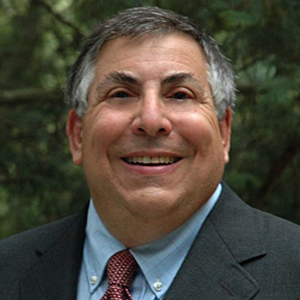
Dennis Jaffe is an FFI Fellow and recipient of FFI’s 2017 International Award and 2005 Richard Beckhard Practice Award. He is with Wise Counsel Research based in San Francisco and the author of several books, including Stewardship in Your Family Enterprise and Cross Cultures: How Global Families Negotiate Change Across Generations. A GEN faculty member, he has proved global insights have led to teaching or consulting engagements in Asia, Europe, the Middle East, and Latin America. He can be reached at djaffe@dennisjaffe.com.
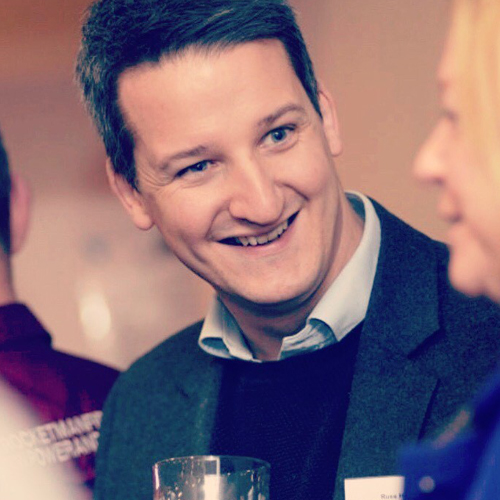
Russell Haworth is a chartered financial planner with Proposito Financial Planning and a family business consultant based in the UK. He is the host of The Family Business Podcast which is part of a wider educational and support initiative for family businesses from The International Centre for Families in Business. He can be reached at russell.haworth@proposito.co.uk.
Related Articles
If you enjoyed this article, view the related articles that discuss the impact of the legendary Three-Circle Model and whether or not the family office industry is becoming a victim of its success.

